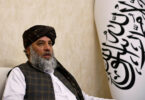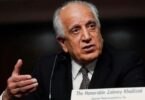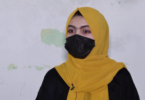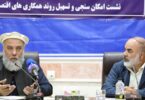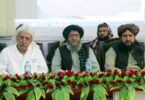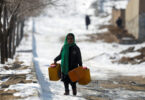KABUL (Agencies): With the start of the Doha talks last year between the Afghanistan government and the Taliban aimed at ending 19 years of bloodshed, there were great expectations among Afghan women. Yet there were only four female representatives among the 21-member team at the Qatar talks and the role of women in the peace process has proved insignificant.
While peace talks are ongoing, targeted killings are still carried out in Afghan cities and deadly fighting continues in the countryside. Afghanistan has become the country of widows – a legacy of war. Rahmat Gula is a housewife who lives in the southern province of Kandahar, birthplace of Taliban. ‘My husband was killed in the war. I don’t have money to educate my children. I spent my whole life in poverty. There has been no change in my life in these 20 years,’ she says.
The history of Afghan women in modern times has been one of hope and hopelessness. In the early 20th century King Amanullah’s rapid reforms to free Afghan women from the shackles of conservatism met with a backlash that forced him into exile. Then in 1979, the Soviet invasion was accompanied by a cry for women’s empowerment, promising a new dawn of equality. After a decade-long opposition, the Islamic Mujahideen forces eventually drove the Soviets away, and Afghanistan returned to strict conservatism.
Under the Taliban, girls were banned from going to school, and women could not leave their homes unless accompanied by a male family member. Women who dared to speak out in public could expect a lashing or a bullet in the back of the head in the football stadium. Bearing these stories in mind, young women today fear the return of darker times. The captain of the women’s national football team, 21-year-old Nilab Ahmadi, was 16 when she started playing soccer. For the past five years, her team has held its matches in the Ghazi Stadium, once the site of Taliban executions.
‘Afghan women want peace. We are tired of war. The Taliban are our brothers. If their thinking has changed, we will accept them. But if their ideology is the same, I am not willing to sacrifice my rights,’ said Nilab. This sentiment transcends generations. Based in Herat, the Afghanistan girls’ robotics team are survivors in a male-dominated place. During the Covid pandemic the team developed a prototype ventilator, and their leader was chosen as one of the BBC’s 100 most inspiring and influential women of the year.
But Herat is a deeply conservative city and domestic abuse is so pervasive here that its main hospital has a ward for female survivors of self-immolation. I remember the youngest member of this robotics team, a bright 16-year-old, telling me that she had big goals to achieve and did not want to witness the return of Taliban’s rule. Early this year, three female employees of the local TV channel were shot dead in eastern Nangarhar province on their way home from work. ‘Why should women pay the price for peace and war? We women are also humans and have the right to live as humans,’ said Rahima, a student in eastern Nangarhar.
As the impending withdrawal of American and Nato-led troops nears, the cry for the rights, protection and freedoms of Afghan women is louder and clearer than ever. Afghan women hope that the world will not abandon and forget them again. Unbelievable, it seems, this is exactly where we appear to be heading.

